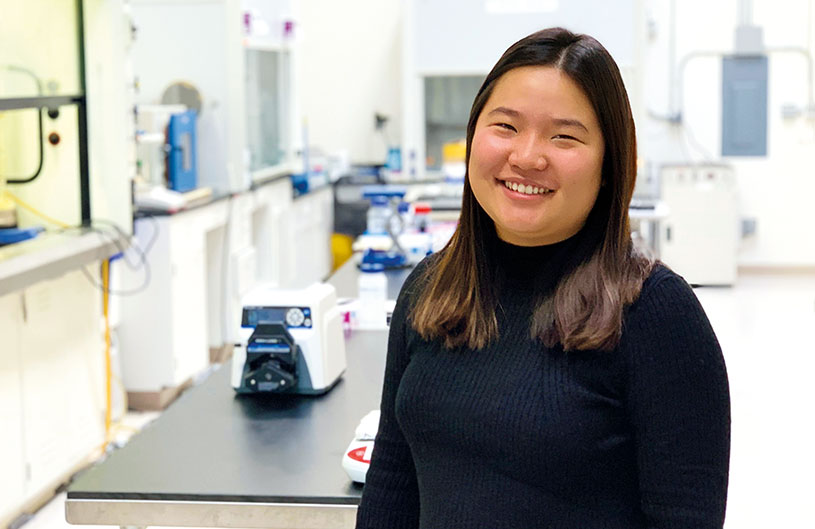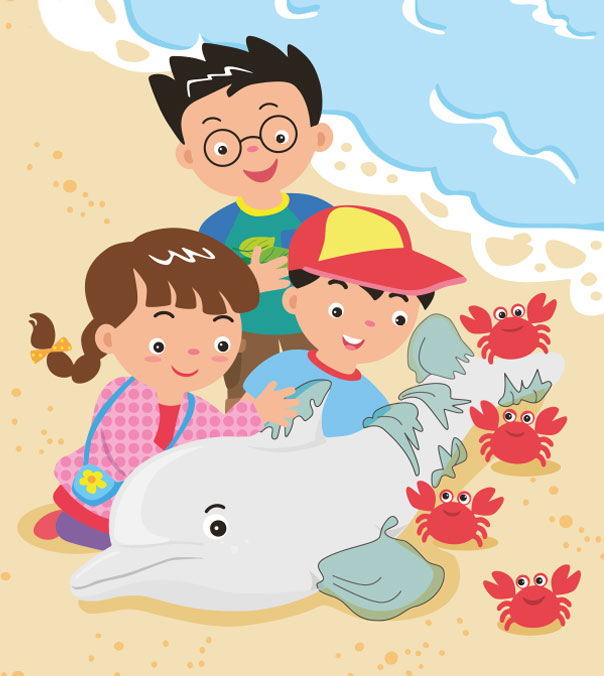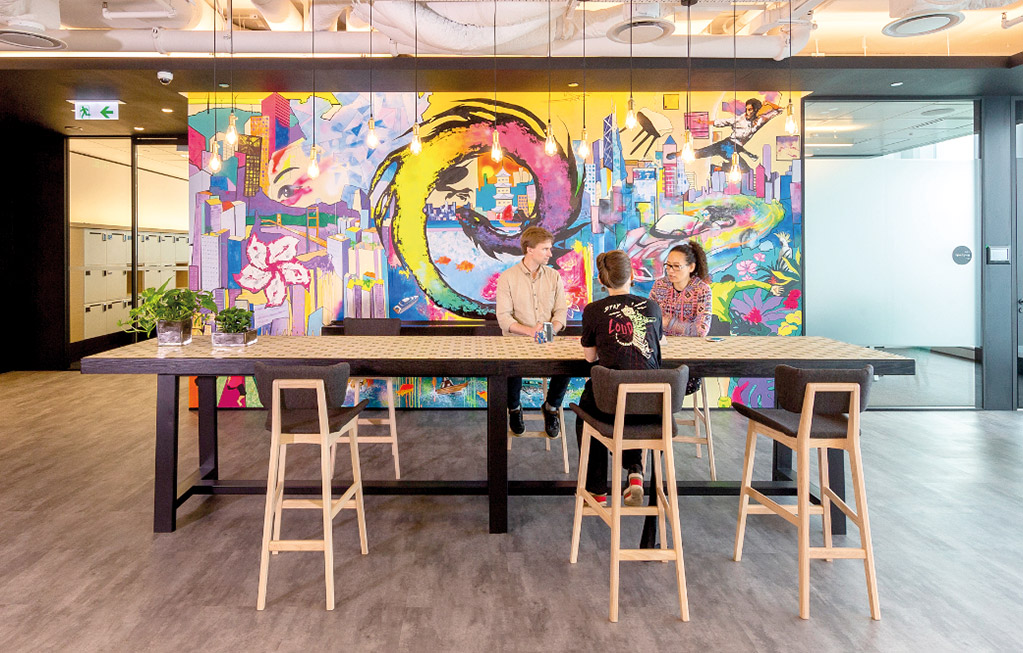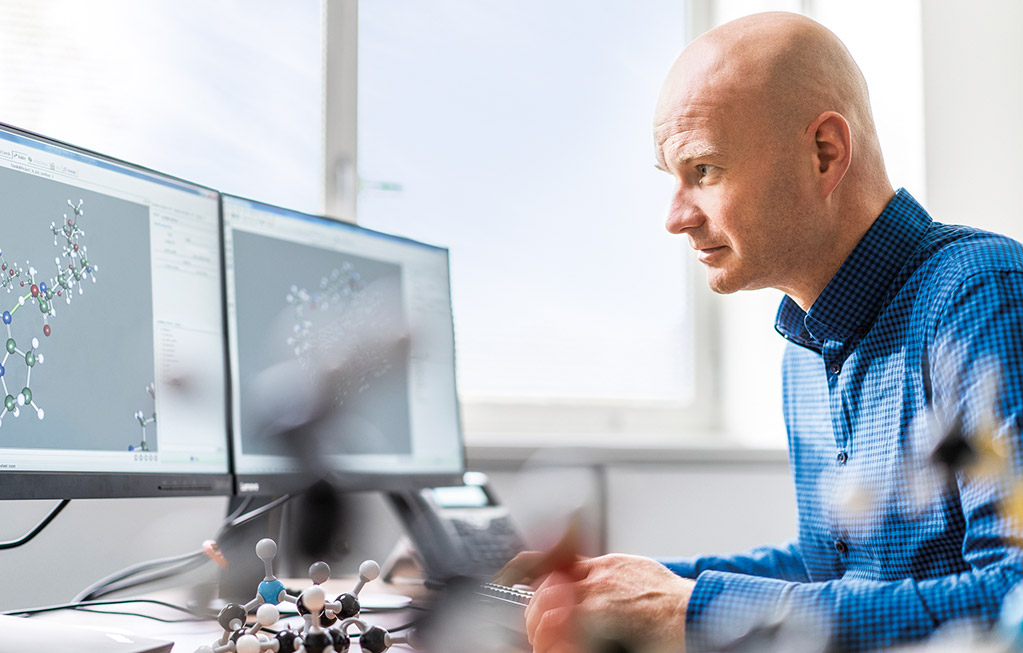UN Sustainable Development Goals
Protect and sustainably use the oceans, seas and marine resources
What’s that frightening object poking out of the water? The occupants of the dinghy, Charlie, Victor and Kathy, quickly figure out that it can’t possibly be a shark. No, it’s a pile of debris floating in the water. But the three friends know just what to do: Victor makes a big net out of algae which the other two use to wrap around the pile before dragging it ashore with the help of a couple of fish. The flotsam is then disposed of correctly.
These three little conservationists are the heroes of a picture book published by Covestro and distributed at primary schools and kindergartens in Taiwan. Since the book was launched in 2017, it has reached an audience of over 20,000 young readers. With its light-hearted approach, it aims at encouraging children to develop a responsible attitude to waste and opening their eyes to a problem affecting not just the island of Taiwan, but the world at large: plastic waste in the oceans. An average of eight million metric tons of plastic finds its way into the sea every year.
Efforts to address the situation are being made everywhere by governments, authorities and organizations, companies and associations, researchers and consumers alike – for example, in finding ways to collect waste. A particular concern is to prevent more and more waste ending up in the oceans via waterways or uncontrolled landfills. Taiwan’s two-pronged approach focuses on prevention and education. The company's picture book has received the support of five natural science museums and, as of 2018, nine national parks as well.
Little conservationists: The company's picture book is helping children in Taiwan and Thailand learn how to handle waste correctly.
“Mankind is currently searching for water in space while neglecting our rivers, lakes and oceans,” says Wei-Hsin Sun, Director General of the National Museum of Natural Science. “We have to persuade the public, and the younger generation in particular, to take water pollution seriously and to tackle the problem.”
One thing above all should be clear: Plastics are generally far too valuable to simply throw away. In many durable – in example non-disposable – applications, they make life safer, more comfortable and especially more sustainable, by ensuring that vehicles use less fuel and buildings less energy, to name just two examples.
Yet even when consumers are finished with them, plastics can be useful: Ideally, they are recycled and, in the process, mechanically or chemically separated so that new plastics can be made from them.
“If effective waste management and recycling become more common worldwide and the throwaway mentality in society changes, we’ll have the chance to stop littering the ocean with plastics and other materials,” says Dr. Christian Haessler, Head of Sustainability at Covestro.
We have to mobilize the public more effectively.
Wei-Hsin Sun, Director General of Taiwan’s National Museum of Natural Science
Global alliance against plastic waste
Haessler has great hopes of the new Alliance to End Plastic Waste – a worldwide coalition of around 30 companies working in the chemicals, plastics, consumer goods and waste industries. Covestro is a founding member of the alliance, which intends to provide more than a billion dollars over the next five years to improve waste management and pursue waste reduction. At the same time, the alliance wants to drive forward solutions for the sensible use of plastics after they have served their original purpose.
“What’s decisive is a holistic concept – within the plastics industry and far beyond it,” says Haessler. “We will only succeed in using resources sustainably if we consider every part of the raw materials cycle, from procurement and use all the way to recycling.”
Covestro is supporting this comprehensive approach within the company, too. When it comes to raw materials, for instance, we are working with partners to research how to recycle emissions such as CO2 from the steel industry and thus save on crude oil. In production, for instance, we are working on a new process aimed at recovering salt and water as raw materials. And in the products area, Covestro is using polycarbonate water bottles to manufacture composite materials.
“We also see other companies along the value chain make similar efforts and this is a trend that needs to pick up speed,” says Haessler. “At the same time, we have to push for a public change in awareness.” In this spirit, Covestro is cooperating with the WWF in Hong Kong, for instance, to encourage schoolchildren to reuse plastics and to educate them about marine pollution through a program of excursions. And the Covestro picture book featuring the three little environmentalists is also popular in Thailand, where it was developed. Its hero, Charlie, has a clear message: “We can get rid of this mountain of waste for good if we learn how to produce less litter, re-use it and recycle it.”
Facts we can’t ignore
Young Champions
Bright ideas

New recycling: Miranda Wang turns plastic waste into chemical precursors.
Some types of plastic waste cannot be recycled. At least, this was the case until recently, when Miranda Wang and her friend had the bright idea of breaking this waste down into its chemical components, thus creating new materials that are even biodegradable. The two Canadians developed a special low-cost catalyst for this purpose. Their small California- based company BioCellection is pursuing a big goal: to make the world’s plastics endlessly recyclable one day.
And their project now has additional backing from the United Nations, which has nominated Miranda Wang as one of its Young Champions of the Earth of 2018. The 24-year-old shares this honor with six other inventors from around the globe who are working on environmental projects ranging from the use of diesel particulate matter all the way to the protection of coral reefs. As a partner of the United Nations Environment Program (UNEP), Covestro offers the young pioneers expert advice and networking support.
More information about the Young Champions.


